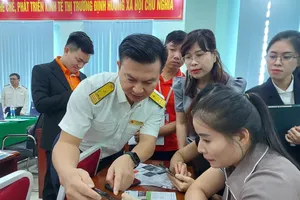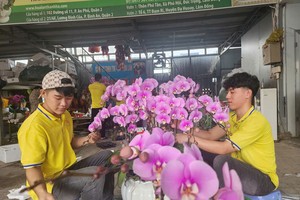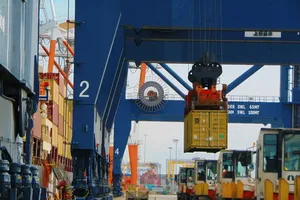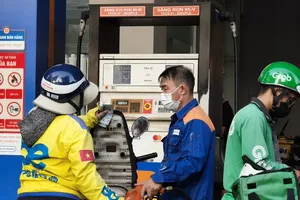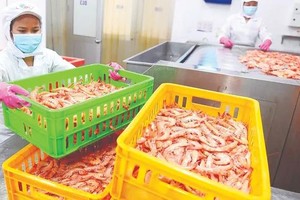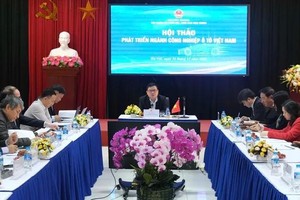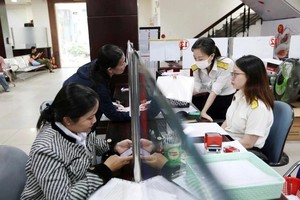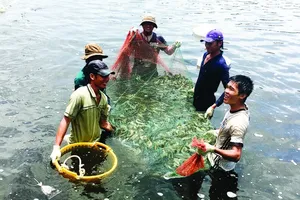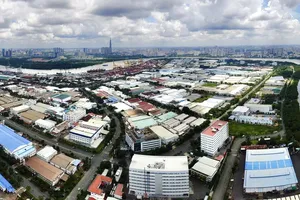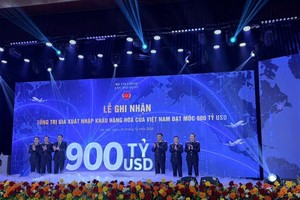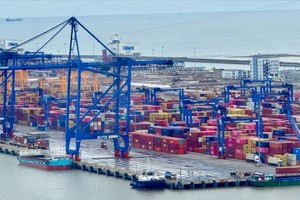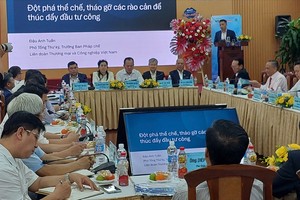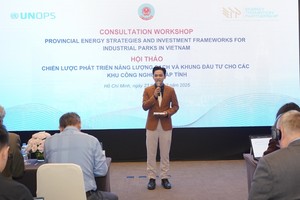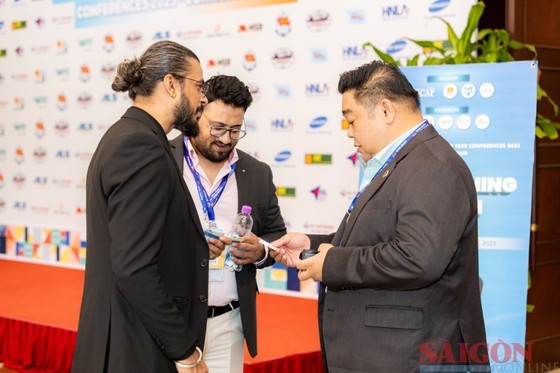 |
Conference participants exchange their ideas |
At the mid-year conference of the ASEAN Federation of Forwarders Associations (AFFA) hosted by the Vietnam Logistics Business Association (VLA) in Da Nang City, Ms. Hang affirmed that the country is ready to cooperate with other ASEAN nations to develop the logistics industry toward a greener and more sustainable orientation.
At the conference, delegates exchanged and discussed topics such as the facilitation of cross-border transport, human resources training in the logistics industry, and sustainable development and digital transformation in the logistics industry.
Ms. Nguyen Minh Hang said that the global logistics industry is entering a recovery phase, overcoming difficulties caused by epidemics and conflicts in the world. Thanks to the great efforts of associations and businesses, the logistics industry has limited negative impacts and gradually recovered, with an expected growth rate of 4 percent in 2023 and 3 percent in 2024.
Vietnam's economy has lately become an important growth engine in the regional economy and entered the top 40 largest economies in the world. It is forecasted that in 2028, Vietnam's GDP by purchasing power parity (PPP) - a popular metric used by macroeconomic analysts that compares different countries' currencies through a "basket of goods" approach - will rank 20th in the world.
Managing Director of SLP Vietnam Edwin Chee emphasized that with its strategic location, Vietnam is a prominent transshipment hub in Asia. If the country can take advantage of its good location, businesses’ logistics costs will be significantly reduced. As a result, Vietnam becomes more attractive to FDI investors and global third-party (3PL) logistics service providers.
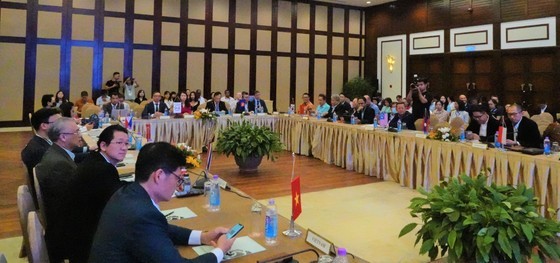 |
At the conference |
According to Mr. Somsak Wisetruangrot, President of the Logistics Training Institute of the ASEAN Federation of Forwarders Associations, the governments in several countries such as Malaysia and Thailand are actively supporting the training of logistics personnel but some countries have not really paid attention to this.
He added that if Vietnam wants to become Asia's new transport and logistics hub, Vietnam needs to strengthen connections, share experiences and knowledge, and enhance face-to-face or online training courses to improve the quality of human resources in the logistics industry in the coming time.
According to Mr. Tran Chi Dung from AFFA’s Sustainable Development and Digital Transformation Group, recently, many universities in Vietnam have opened logistics majors. However, teachers of the schools have little experience and curricula are quite similar and impractical. Therefore, schools need to clearly define the basic standards for the output for the logistics industry. At the same time, it is necessary to actualize strong training programs and applications for digital transformation so that training programs are always close to reality and bring high efficiency.
